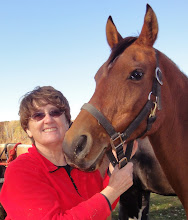We have to teach children about the violence that they see all around them—especially on the internet, but in the mass media everywhere. Kids are now exposed to more violence than we older people ever have been. We have to help kids see that no matter how satisfying it might be to see so called bad guys get beat up and killed, this is not real. This is imaginary.
In real life, violence hurts. Violence can kill the person. Violence can kill the soul. We adults have to let kids know that when people beat others up, kill them, or say mean things, it hurts, it kills, and people stay dead.
When kids make fun of other kids, call them names, gang up on them, this hurts other kids. It may seem like fun and be funny at the time, but you are really hurting others. Is that what you want? Kids can handle questions like this. Kids want adults to ask them questions like this, in a relationship of caring and safety.
Kids need to grapple with the question, Do you want to hurt other people, or do you want to have fun? If you want to have fun, then have fun, but don’t have fun by hurting other people.
There are many people who would not tease others, but as bystanders, they don’t know what to do. Some enjoy seeing others being mocked and teased. It’s built in to our blame the victim culture and into our own relief that we are not being mocked. Bystanders have to figure out how to respond to people who are doing unkind things to others, such as teasing and mocking.
If you want to have fun, there are many other ways to have fun besides making fun of people or laughing when other kids are being picked on.
We have an incredible culture of blame—if someone is victimized that person deserves it. It’s almost funny, almost a relief that it is not us, but them, who are the butt of jokes.
This mean things hurt the spirit of other kids. If the kids have hurt spirits, they need to talk to other people about their hurt. If they don't the hurt just grows and grows. If hurt persons do not find a way to deal constructively with their hurt, they could do things to hurt other people or hurt themselves or both.
Hurt that is unspoken can turn to rage and then to hatred. Desire for revenge can build. Soon, thoughts other people or themselves become things that make hurt people feel better.
If we teach kids and adults how to cope with hurt, we would go a long way to becoming a compassionate society and we would prevent a lot of violent acts, too.
Sunday, April 22, 2007
Teaching children that violence hurts
Labels:
bullying,
media violence,
mocking,
teasing,
violence prevention
Subscribe to:
Post Comments (Atom)
The blog is for witty people who want to build community. In this world that seems to be so full of witless efforts to self-aggrandize, I want to promote the simple idea of human connection.

No comments:
Post a Comment